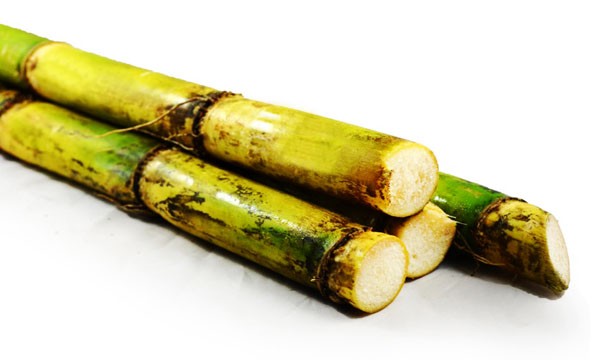Efficient Cane Sugar Processing: Optimizing Return and Purity
Efficient Cane Sugar Processing: Optimizing Return and Purity
Blog Article
A Thorough Introduction of the Health and Economic Ramifications of Cane Sugar Handling on Neighborhood Communities
Cane sugar processing plays a critical function in forming the financial landscape of local communities, using job opportunity and boosting secondary sectors. However, the wellness implications related to high sugar intake can not be forgotten, as they add to rising rates of obesity and diabetes mellitus. This nuanced vibrant welcomes a vital assessment of just how areas can maximize financial gains while dealing with journalism health and wellness difficulties they encounter. The expedition of educational campaigns and sustainable practices might simply hold the secret to resolving these clashing passions. What approaches might areas carry out to attain this equilibrium?
Financial Benefits of Walking Cane Sugar Handling
Walking cane sugar handling provides significant economic advantages that extend past the instant agricultural field. The growing and processing of sugarcane create many job opportunities, from farming to manufacturing and distribution. This work generation not only sustains regional economies but additionally promotes neighborhood development by giving steady revenue resources for households.
Moreover, the sugar market boosts supplementary businesses, consisting of transport, devices supply, and packaging solutions (Cane Sugar Processing). As these fields grow, they add to a more durable financial framework, boosting overall neighborhood resilience. The export capacity of refined cane sugar better enhances financial advantages, positioning areas as affordable players in international markets
Financial investment in modern processing centers can result in boosted performance and efficiency, thereby decreasing waste and maximizing resource use. This change not only profits the neighborhood economy however additionally supports sustainability efforts by decreasing environmental effects.
In addition, the earnings produced from walking stick sugar processing can be reinvested in regional facilities, education, and healthcare, promoting alternative community growth. In general, the economic advantages of cane sugar processing are multifaceted, offering a structure for enduring prosperity in farming areas.
Wellness Threats Linked With Sugar Intake
Extreme sugar usage presents considerable health and wellness threats that call for serious attention. High intake of sugarcoated, especially from refined foods and beverages, has actually been connected to many wellness problems. One of the most important worries is obesity, as sugary diet regimens add to an enhanced calorie consumption without offering crucial nutrients. This extra can bring about metabolic conditions, consisting of kind 2 diabetic issues, which has actually come to be progressively prevalent in both grownups and kids - Cane Sugar Processing.
In addition, high sugar consumption is related to heart disease. Elevated blood glucose levels can cause insulin resistance, a forerunner to different heart-related problems. Additionally, sugar can have destructive effects on dental health and wellness, resulting in dental caries and gum condition, as microorganisms in the mouth prosper on sugar, generating acids that erode tooth enamel.
Moreover, emerging research suggests a prospective web link between high sugar consumption and mental health and wellness disorders, such as depression and anxiousness. As communities grapple with these health and wellness threats, it becomes vital to advertise awareness and urge much healthier nutritional options. Addressing sugar usage is critical not just for individual health and wellness yet additionally for the overall health of local neighborhoods, highlighting the requirement for extensive public wellness approaches.
Environmental Impacts of Sugar Manufacturing
Regularly forgotten in conversations concerning sugar's ramifications is the substantial ecological influence of sugar manufacturing. The cultivation of sugarcane usually demands extensive land use, causing logging, loss of biodiversity, and disturbance of regional ecological communities. The conversion of woodlands and wetlands right into sugar haciendas can result in habitat devastation, harmful countless species and modifying environmental balance.
Furthermore, sugar manufacturing is resource-intensive, consuming significant amounts of water for irrigation. This can lead to deficiency of neighborhood water resources, negatively affecting both farming techniques and area accessibility to tidy water. In addition, making use of chemical plant foods and pesticides in sugarcane farming can contribute to soil degradation and water pollution, as drainage from these chemicals goes into close-by rivers and lakes, affecting aquatic life and human wellness.
The ecological impact encompasses the processing stage, where energy usage and waste generation more worsen ecological issues. Air pollution from shedding sugarcane fields, along with greenhouse gas discharges, add to environment adjustment. Thus, the environmental implications of sugar production warrant serious factor to consider, urging stakeholders to take on more sustainable practices to alleviate these adverse impacts on regional environments and communities.
Task Development and Community Growth
The environmental difficulties postured by sugar manufacturing are frequently counteracted by its potential for economic advantages, particularly in task production and community growth. The cane sugar industry acts as a substantial source of employment in many rural locations, offering tasks throughout various skill levels, from farming labor to handling and distribution functions. This employment not only sustains private family members however also adds to the total economic vitality of local neighborhoods.
Additionally, the facility of sugar handling centers promotes secondary businesses, such as transportation services, tools supply, and maintenance providers. As these businesses flourish, they create additional jobs and reinforce local economic situations. The earnings generated from the sugar market likewise leads to enhanced tax incomes, which can be check it out reinvested into community services such as education, medical care, and framework development.
Additionally, the sugar market commonly takes part in area development initiatives, such as supporting regional institutions and health programs, consequently boosting the lifestyle for citizens. By cultivating solid area ties and advertising financial growth, the walking stick sugar processing sector plays a crucial duty in uplifting local populations, making it a necessary element of lasting growth strategies in sugar-producing regions.
Balancing Health and Economic Development
In navigating the complexities of walking stick sugar handling, an essential obstacle depends on balancing health considerations with economic development. The sugar sector considerably adds to neighborhood economic climates by creating work, promoting relevant fields, and increasing tax profits. However, the health and wellness implications connected with excessive sugar consumption can result in chronic conditions such as weight problems, diabetes, and cardiovascular concerns, which can burden public health systems and diminish workforce efficiency.

Additionally, regulative frameworks can play an essential duty in guiding market practices in the direction of even more lasting and health-conscious techniques. By cultivating collaboration in between federal government bodies, health organizations, and the sugar industry, neighborhoods can browse the dichotomy why not try these out of health and wellness and financial development, guaranteeing that the benefits of walking stick sugar handling are equitably shared while focusing on public wellness.
Verdict
Finally, the handling of walking cane sugar offers both substantial financial advantages and notable health risks for regional areas. While it promotes task development and promotes regional advancement, the connected health and wellness worries, especially regarding obesity and diabetic issues, necessitate a careful harmonizing act. By promoting responsible consumption and investing in area education and learning and sustainable practices, it is possible to make best use of financial benefits while minimizing adverse health results, consequently guaranteeing a much healthier future for neighborhood populations.
Additionally, sugar can have destructive results on dental health and wellness, resulting in cavities and gum tissue condition, as microorganisms in the mouth prosper on sugar, creating acids that deteriorate tooth enamel.
Dealing with sugar usage is important my latest blog post not only for specific health and wellness however also for the total wellness of neighborhood neighborhoods, emphasizing the need for thorough public health and wellness strategies.
Regularly ignored in discussions regarding sugar's effects is the considerable ecological influence of sugar production. The health and wellness implications connected with excessive sugar usage can lead to chronic illness such as excessive weight, diabetes mellitus, and cardio concerns, which can concern public wellness systems and reduce labor force productivity.

Report this page